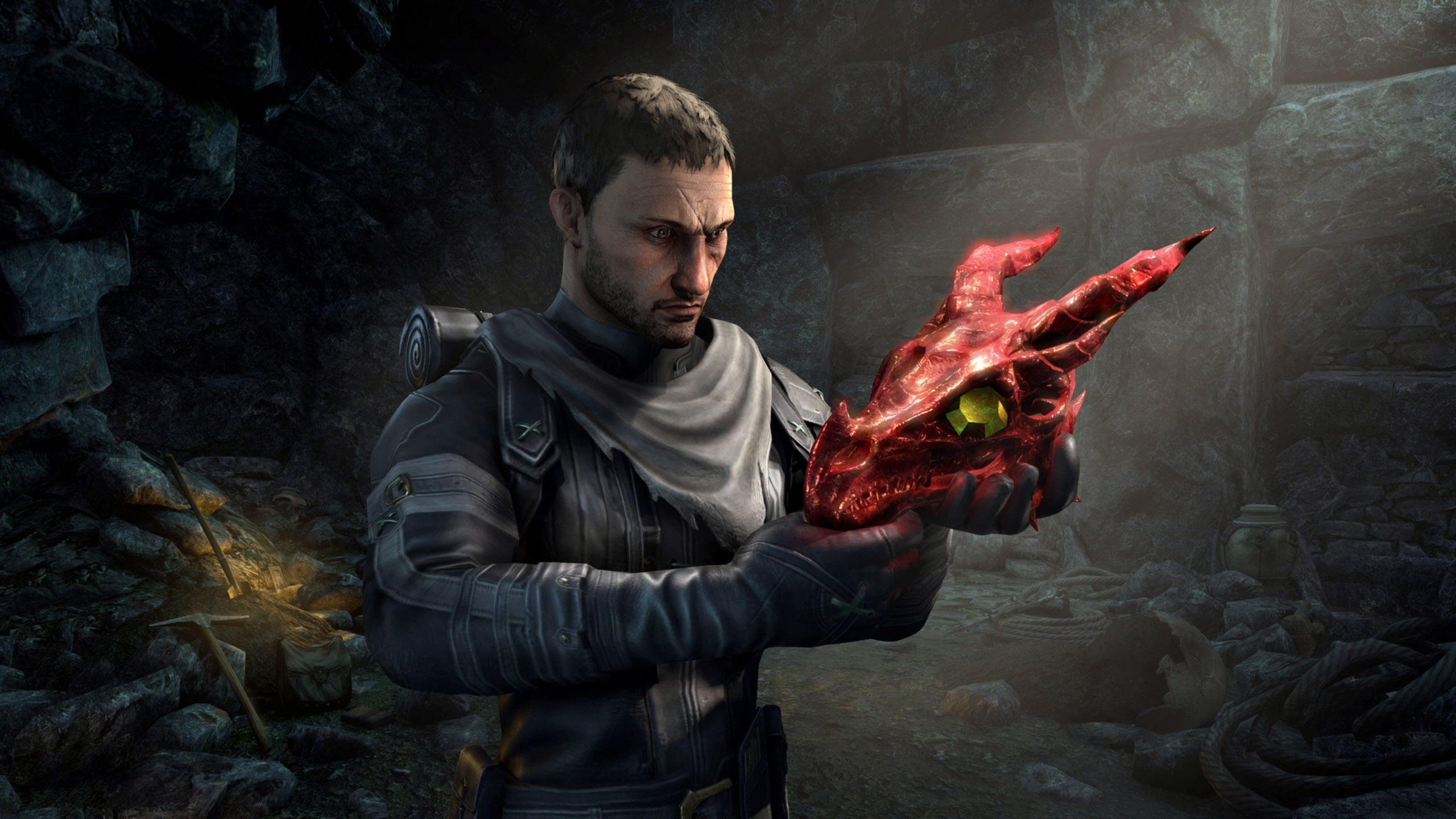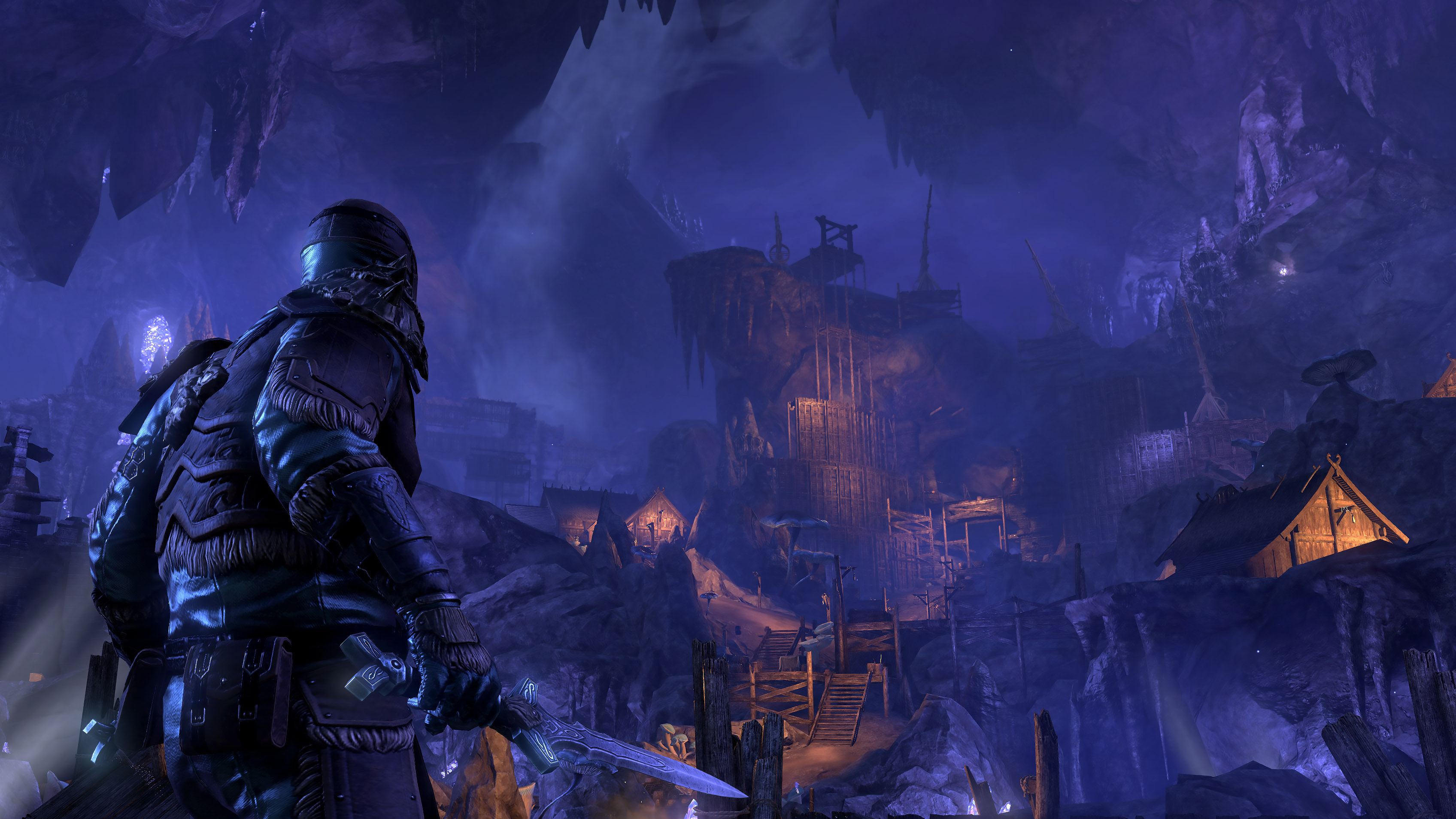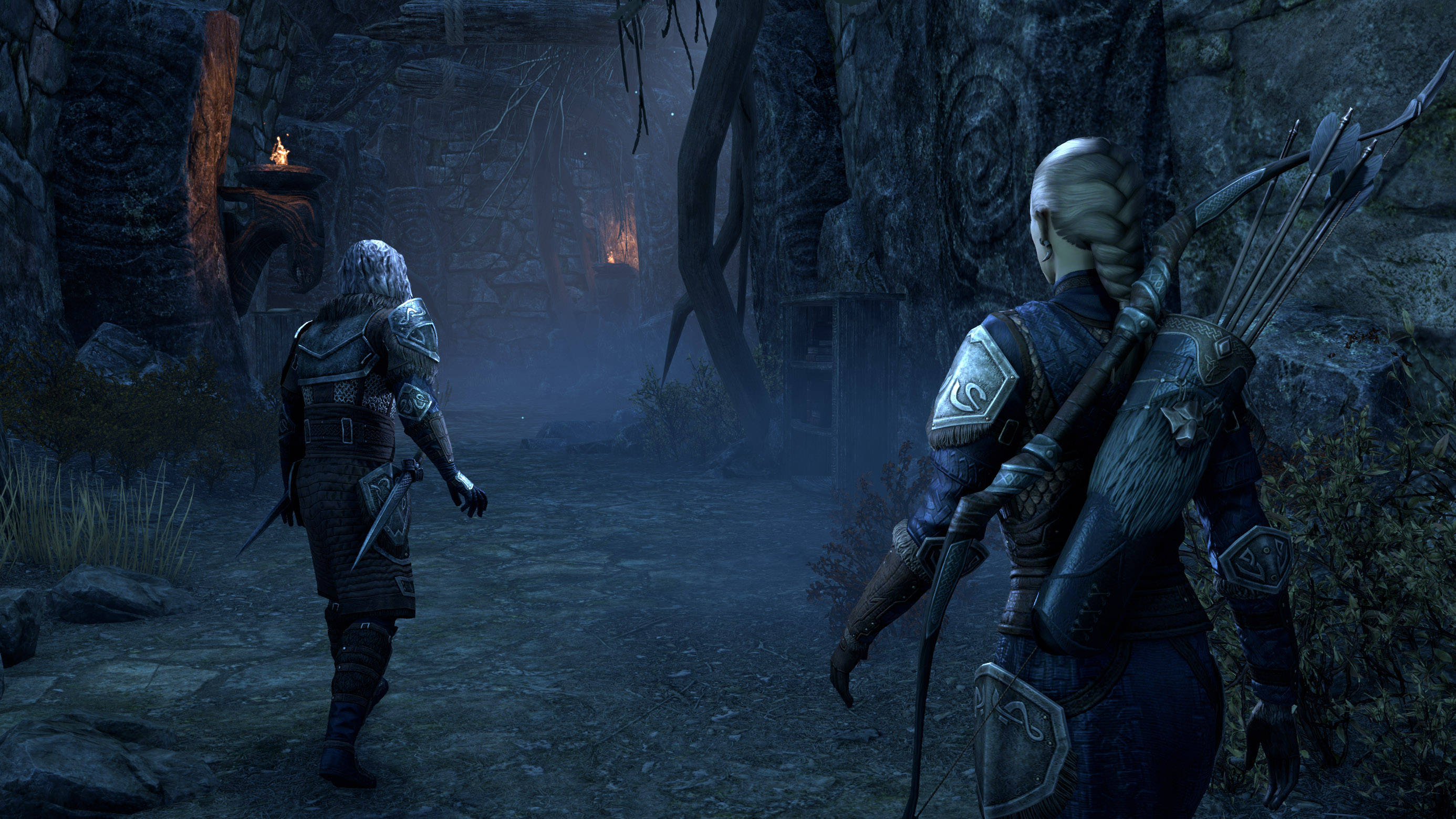How the next Elder Scrolls Online expansion plans to turn you into the 'Indiana Jones of Tamriel'
TESO is moving beyond thieving, housing, and questing to bring its own new activities to Tamriel.

The Elder Scrolls Online's next expansion, Greymoor, is digging into Tamriel's history in more ways than one. The MMORPG is headed to the western territories of Skyrim a thousand years before the events of The Elder Scrolls V, and players will be able to join a new guild that Zenimax referred to during its reveal as "Indiana Jones in Tamriel."
The Antiquarian Guild will send you all over the continent to uncover artifacts and dodge the local enemies—but you're more like Indy's nemesis, keeping your unearthed treasures with the guild's blessing instead of declaring "that belongs in a museum!"
Before the newly-minted antiquities system took form, ESO's creative director Rich Lambert says that the team was searching for a "back of the box" feature. Greymoor needed a marquee element aside from yet another new map zone and new questline.
"Players consistently tell us they love exploration," Lambert tells me in our interview. "They consistently tell us they love the lore." Zenimax wanted a new system that could encourage both. "In ESO we have lots of questing and it's great. There's lots of killing in ESO as well and it's fun. But we needed another alternate activity," he says.
Digging for diversions
As a newly inducted member of the Antiquarian guild, I'm given a handful of choice "leads" that come in rarities just like items do. To use a lead, you'll whip out your magical new Antiquarian's Eye to scry for the antiquity's location in the first of ESO's new minigames.
I started feeling like a chess player mulling over my next five moves before I could commit.
Scrying is a variant on a matching game where you'll have a number of turns to collect contiguous matching shapes and capture marked spots on the board. Scrying for lower rarity items is easier, of course. I didn't need to be terribly tactical about planning each of my moves. When I started looking for the gold Legendary antiques that form parts of a new Dwemer-inspired mount, I started feeling like a chess player mulling over my next five moves before I could commit.
Antiquity hunting has its own skill lines as well. You use skill points to gain new scrying abilities, just like you do for combat abilities and other guild skills. One skill I unlock is a sort of area-of-effect ability that flips a group of tiles to the same symbol, allowing me to capture a large area all in one turn. Another captures all tiles of a chosen symbol that are adjacent to any of my owned tiles. As I tried increasingly difficult boards, it became clear I'd really need those skills to successfully finish a scrying minigame.
Keep up to date with the most important stories and the best deals, as picked by the PC Gamer team.
"I think scrying is in a really, really good place," Lambert says. "And it's fun, especially when you start digging in on the bigger boards, the more complex ones where you have to use your abilities, feels really fun and you feel smart as you start to learn things and make progress through."

After successfully scrying, your map will be marked with a spot (or multiple spots, if you're shoddy at scrying) to search on your map. After you've found the spot, you'll dig into ESO's new excavation minigame.
Excavating is a bit more like a game of Battleship, less of a puzzle and more of an exercise in luck and brute force. Fortunately you can try again if you fail. Your hand tools (a shovel, trowel, and brush) each remove different amounts of dirt from the conveniently grid-lined dig site. I can imagine how it's meant to make me feel like a meticulous archeologist, but I've never been one for guessing games. I'd solve the problem by spamming my giant shovel ability if it didn't cost me the most energy to use.
Despite being a little dry for my taste, I appreciate the scenic details in excavating, like how as turns progress your surroundings turn from day to night as if you really are spending hours at a dig site. It's not as skill-based as scrying, so although there's a bit of amusement in trying to do it perfectly, I suspect that success hinges more on a bit of luck and how many skill points I've invested than my actual mastery of the game. Lambert says that as of the preview build I played, Zenimax is still iterating on both minigames. Excavating in particular he thinks "isn't quite there yet." My longing for a backhoe instead of a spade agrees.
The antiquities themselves, when unearthed, can be any number of things. There are house furnishings for us greedy homemaking antiquers, a new PvP siege weapon, even emotes. Some will be ESO's new Mythic items, high level specialty gear that sometimes come with a boon and a curse.
Scrying forward
Antiquity hunting feels different from ESO's current loop of activities. It's a largely chill experience, revolving around puzzles moreso than fighting. You may end up amidst a few baddies while looking for your ultimate dig site, but that's the nature of an open PvE world.
I do love getting into the weeds of how games are made, but Lambert understandably avoided talking too deeply about ideas that were rejected for the Antiquities system before it took its current form. He mentions that the team tried minigames inspired by lockpicking, a familiar element in Elder Scrolls games, and some inspired by Fallout's terminal hacking. In the end, they settled on more universally recognized concepts.

"A lot of people know and understand shape matching and how it works and the rules behind that," Lambert says. It feels more magical as well, he explains, than picking locks. That was one of Bethesda's original criteria for ESO's new guild and new system—it had to really feel like it belonged in The Elder Scrolls, though I'd still really like to know what the ancient Nord version of terminal hacking looked like.
"Overall they love the concept of the system," Lambert says of the lore masters at Bethesda. They hope players will too, of course.
Although a new guild and a couple minigames may sound small, Antiquity hunting is the first—by my memory—entirely new system that Zenimax has added to Elder Scrolls Online. ESO has player housing, lockpicking, a justice system, and plenty of other traditional Elder Scrolls activities. They've added concepts like combat classes, player guilds, PvP, and other things that come part and parcel with other MMOs. Antiquities fit neither category. It's encouraging to see Zenimax designing genuinely new elements from scratch that aren't inherited from earlier Elder Scrolls games.
Will the Antiquarian guild find its way into The Elder Scrolls 6 or some other future game? "It would be flattering if it did," Lambert says. But it works for ESO, and that's enough for now.

Lauren has been writing for PC Gamer since she went hunting for the cryptid Dark Souls fashion police in 2017. She accepted her role as Associate Editor in 2021, now serving as self-appointed chief cozy games and farmlife sim enjoyer. Her career originally began in game development and she remains fascinated by how games tick in the modding and speedrunning scenes. She likes long fantasy books, longer RPGs, can't stop playing co-op survival crafting games, and has spent a number of hours she refuses to count building houses in The Sims games for over 20 years.

